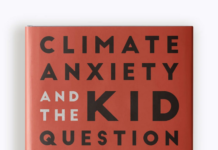Newswise — LONDON — It may be surprising to hear, but medically speaking, not all stress is bad. Healthy stress levels help build resilience, says Safia Debar, MBBS, a stress management expert at Mayo Clinic Healthcare in London. In this expert alert, Dr. Debar explains the difference between good and bad stress and how to tell when you are in danger of overload.
Stress is a physical and psychological reaction to a demand, and that demand can be anything, Dr. Debar says. Stress that is good for us and may even give us a sense of well-being is eustress, the opposite of distress. The same event—for example, getting married—might provoke either one, Dr. Debar says.
“It’s about the perception of that stress and how your body is actually handling it,” Dr. Debar says. “Chronic stress will impact every organ system in the body: You might feel anxiety, depression and digestive issues, for example.”
Stress prompts a cascade of reactions within the mind and body as you mount a stress response, Dr. Debar says. Under normal stress, a person starts at a baseline of relaxation, encounters a stressor, the stress response begins, rises to a peak, and then comes back down to baseline.
Among the physical changes that may occur when you perceive a threat:
- The sympathetic nervous system and production of the primary stress hormone, cortisol, activate.
- Thinking becomes negative as you experience or anticipate something bad. Attention becomes hyperfocused on what is happening.
- The heart, lungs and muscles prepare for you to fight or run. There is increased heart rate, blood pressure and breathing rate as the body needs to deliver more oxygen to cells. Muscles tense.
- The digestive and reproductive systems aren’t needed, so their activities slow.
- The immune system turns its attention from fighting microscopic invaders such as viruses or cancer cells and goes into an inflammatory mode, increasing its production of proteins called cytokines that adjust this process.
When someone realizes the threat has passed, the body begins to repair itself from this response and “tidy up”. It shifts to a repair, renew and growth state as the stress response is mopped up. Physically, breathing and heart rate slow down, blood pressure normalizes, you take more expansive breaths, muscular tension eases, the digestive and reproductive systems resume normal activity, and you may begin to connect with others to recount the threat you just experienced, Dr. Debar says.
“If you go up in stress and then come back down, you have completed our cycle. There’s no wear and tear, there’s no damage,” Dr. Debar says. “In fact, it’s probably good for you because it leads to greater resilience. If you’ve ever overcome a stressful event in life, processed it fully and completed that cycle, then the next similar experience you have, you think, `Oh no, but I can do it.'”
However, when someone is repeatedly under too much stress, the ability to go back to baseline slowly starts to wane, Dr. Debar says.
“You can go up in stress and stay there, having a prolonged response. This is when you’re hypervigilant: You’re wired but tired, you’re anxious,” Dr. Debar says. “Or, life has thrown at you so many stressors, that you respond inadequately. It is the lack of recovery rather than the actual stressor itself that is critical. After a while, you may just numb out and show no response.”
Sometimes people think it would be good to show no response, Dr. Debar adds, but internally the stress response and its cascade of internal activities are still happening. They are just hidden.
There are several signs that you may be in danger of stress overload and it is time to address it, Dr. Debar says:
- If stress feels unremitting and constant.
- If stress feels uncontrollable and you’re unable to relax or feel like you’re on autopilot.
- If you have problems regulating emotions.
- If you start hiding from life and/or people.
- You’re experiencing physical symptoms such as headaches, chest pain, stomach upsets, problems sleeping, or getting sick more often.
“Think about how your body handles stress, and how you handle it emotionally, physically and in your relationships,” Dr. Debar says. “What do you do, what do you not do.”
Chronic stress can have long-term health effects. People who feel ongoing physical symptoms or find that lifestyle changes do not seem to help should consult with their health care team, Dr. Debar says.
Image: jcomp/freepik











































